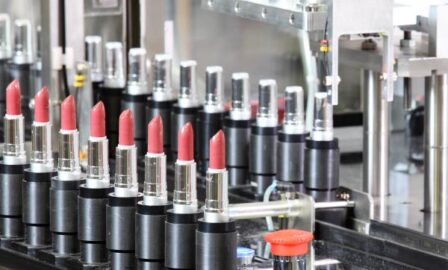The Value of LIMS in Food, Beverage, and Personal Care
It’s common to associate Laboratory Information Management Systems (LIMS) with the biopharmaceutical industry because of its many quality control (QC) laboratories, strict regulatory requirements, and need for precise data management. LIMS can also offer significant benefits to other industries such as Personal Care and Food & Beverage.
Manufacturers across industries are increasing their technological investments to mitigate risks in response to economic uncertainties exacerbated by numerous factors, including the U.S. election, geopolitical tension, shifting consumer preferences, and the increasing use of artificial intelligence (AI). The operating budget’s expenditure in this category went from 23% to 30% in the last year alone.
LIMS is recognized as a component of smart manufacturing technology, which encompasses the incorporation of innovative technologies to enhance efficiency, quality, and adaptability in manufacturing operations, and it plays an important role in this by automating data management. Let’s examine the obstacles that the Food & Beverage and Personal Care industries must overcome and the ways in which a LIMS can help.
Challenges Faced
Regulatory Compliance
Assuring the safety, quality, and sustainability of products can present challenges for these industries due to strict adherence to guidelines and local regulations. Local laws might require unique labeling standards that aren’t aligned with federal guidelines, especially for products that are organic, non-GMO, or locally sourced. Some areas have sustainability programs that mandate businesses to lower their carbon emissions, adopt environmentally friendly packaging, or procure ingredients from local sources.
Other challenges include managing quality assurance (QA) and control processes while keeping accurate records, identifying results that are out of specification, guaranteeing complete traceability from raw materials to finished products, and automating workflows to increase productivity and shorten turnaround times (TAT). To guarantee the safety and quality of products, the Food and Drug Administration (FDA) has established regulations specifically for the Food, Beverage, and Personal Care industries.
There are several relevant regulations where a LIMS can assist with compliance:
-
- Food Safety Modernization Act (FSMA): Mandates the implementation of thorough, scientifically-grounded preventive measures throughout the food supply chain
- Good Manufacturing Practices (GMPs): Sets forth the requisite sanitary and processing standards to produce safe and wholesome food products
- Federal Food, Drug, and Cosmetic Act (FD&C Act): Provides the FDA with authority to regulate cosmetics and ensure they are safe for use
- The Modernization of Cosmetics Regulation Act of 2022 (MoCRA): Enhances the FDA’s jurisdiction over cosmetics, granting them the power to enforce mandatory recalls and require reporting of adverse events
- ASTM International (formerly the American Society for Testing and Materials): Creates and produces technical international standards for a wide range of materials, products, systems, and services; for example, ASTM E1578-18 is the standard for Laboratory Informatics to improve Laboratory Operations in LIMS, reporting, and laboratory support
- ISO/IEC 17025:2017: Ensures that labs generate accurate and trustworthy results, which are necessary to win over clients and regulatory bodies
- HACCP (Hazard Analysis and Critical Control Points): Recognizes, assesses, and manages risks at every stage of the food production process
The Cost of Recalls
In the past year, the USDA issued 65 food product recalls, each with an estimated direct cost of $10 million. The personal care industry faces similar challenges, with the potential for expensive product recalls. For instance, by July 2022, Johnson & Johnson had settled over 38,000 cases related to asbestos in talc products, incurring around $4 billion in defense expenses, settlements, and verdicts. In both industries, a LIMS can lower the expenses associated with product recalls by improving traceability, ensuring adherence to safety regulations, and enhancing quality control measures. This allows for early detection and resolution of issues, thereby reducing the extent and impact of recalls.
The Value of a LIMS in Food, Beverage, and Personal Care
With LIMS capabilities, companies in the Personal Care and Food & Beverage industries can lower the risk of recalls, improve product quality, reduce TAT, maximize use of resources, and better comply with regulations. These LIMS capabilities include:
- Automated Documentation: LIMS can be utilized to automate QC and batch records, audit trails, compliance reports, and inventory. By automating the documentation process, LIMS makes sure that all required records are kept up to date and readily available for auditing, thus ensuring compliance with GMP standards.
- Traceability: LIMS has the ability to trace components and procedures, which is essential for compliance with regulations such as FSMA and MoCRA.
- Standardized Procedures: By enforcing uniform production and testing protocols, LIMS lowers the risk of non-compliance and increases quality. Adding a Laboratory Execution System (LES) module to a LIMS can further assist with guided execution, ensuring the same procedure is done the same way each time.
- Real-Time Monitoring: This feature enables the prompt detection and correction of any deviations from quality standards by providing real-time monitoring of laboratory tests and production processes. For this to be effective, the LIMS must be fully functional and used in real time, ensuring that data is directly entered into the system at the time of testing rather than transcribed from notebooks or forms. By precisely recognizing and highlighting outcomes that are outside of specifications, it improves quality, making products safer and thus lowering the risk of recalls.
- Regulatory Reporting: LIMS can produce reports that are needed by regulatory organizations, guaranteeing that the relevant data is submitted on time and accurately. Some examples are quality control and traceability reports and compliance documentation that ensures regulatory compliance and product safety.
- Automated Processes and Increased Accuracy: A LIMS helps minimize errors and rework, which reduces TAT and maximizes resource usage.
LIMS ensures that legal requirements are met, and product integrity is maintained. In the food and beverage industry, manufacturers are better equipped to handle testing challenges because of advanced capabilities like allergen tracking, shelf-life management, and compliance monitoring made available with some LIMS platforms. A LIMS can offer the scalability and flexibility to adjust to changing industry standards, whether it’s nutritional profiling, microbiological analysis, or sensory evaluation. This will ensure that labs stay at the forefront of innovation and compliance.
For the personal care industry, using LIMS to manage QA data during every step of the production process allows beauty brand producers to ensure consumer safety and maintain their reputation. Among the many processes that LIMS can manage are formulation and development, safety testing, preservative efficacy testing (PET), process engineering improvement, microbiology testing, substantiating compatibility and efficacy claims, allergy testing, and contaminant testing.
Final Considerations
The first step to take when considering implementing a LIMS is to identify the specific needs and challenges of your organization and your industry. This could involve identifying the QC, regulatory compliance, and data management processes encountered in Personal Care in order to guarantee product safety and support product claims, for example; whereas in the food and beverage industry, identifying challenges with food safety and traceability are common concerns, like how nutritional data, allergen testing, and contamination testing are handled. Evaluating existing laboratory and data management processes to identify inefficiencies will help highlight the potential benefits of a LIMS.
Our Clarkston LIMS consulting team has the expertise to support you in this process. Contact our experts today to learn more.
Subscribe to Clarkston's Insights
Co-authored by Davida Basham



